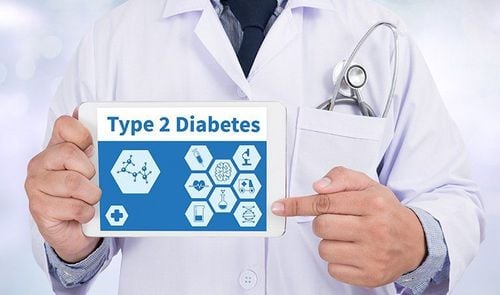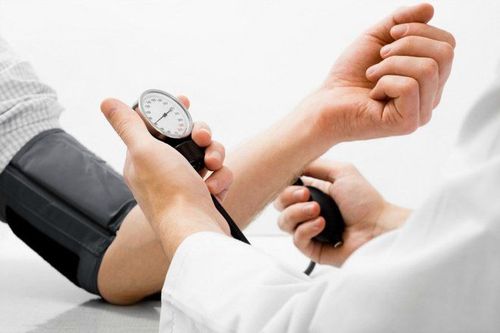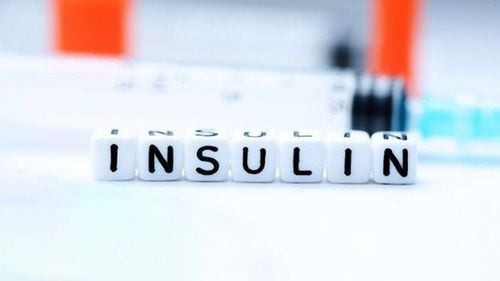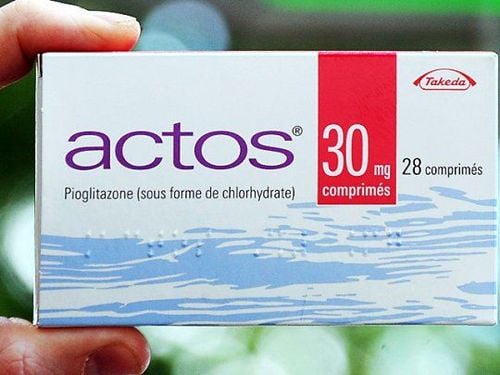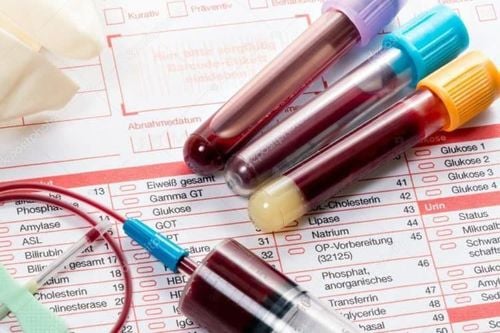This is an automatically translated article.
Type 2 diabetes is a progressive disease. Most people get this disease at some point when treatment won't work as well as it once did. If that happens, you and your doctor will have to come up with a new treatment plan. This article will help us learn more about this issue.
1. Drugs to treat type 2 diabetes
You use medicine to lower your blood sugar. There are several noninsulin medications to choose from that manage type 2 diabetes in different ways. Your doctor may prescribe many different medicines for you to use because these drugs work together.
These medications include:
Metformin: Helps the liver work Thiazolidinediones (or glitazones): Helps improve the removal of sugar from the blood Secretagogues helps the pancreas secrete more insulin Starch blockers: Helps slows down the process by which your body absorbs sugar from the foods you consume incretin-based insulin-stimulating therapies: Helps the liver make less sugar. They also slow down your absorption of food. SGLT2 inhibitors (or gliflozin): Causes the body to release excess sugar through the urine. You also take two drugs at the same time. That's called combination therapy.
Injections
The doctor may prescribe noninsulin injections to the patient. These drugs fall into one of two categories:
GLP-1 receptor agonists: These help your body make insulin. They also help the liver make less glucose. You need to consult your doctor before using these drugs because some drugs will need to be injected daily, others only once a week. Amylin analog: This drug slows digestion. This keeps your blood glucose levels down and helps the liver release large amounts. These drugs need to be injected before eating.

Người bệnh có thể sử dụng kết hợp nhiều loại thuốc khác nhau để điều trị tiểu đường loại 2
Insulin therapy
In some cases, it is still necessary to take insulin therapy if you have type 2 diabetes. The type of insulin you take will depend on your symptoms.
You may be able to take insulin to control your blood sugar for a short time because of several factors such as:
Due to surgery Medical emergencies such as heart attack Pregnancy Steroids Drugs Steroids The body lacks insulin and burns fat to be healthy. fuel instead of sugar Lifestyle changes and medications don't work. If you've tried diet, exercise, and oral diabetes medications and your blood sugar is still high, your doctor may prescribe insulin.
2. When Type 2 Diabetes Treatment Doesn't Work
Over time, diabetes damages the cells in the pancreas that make insulin. Current treatments are no longer effective. Weight gain and chronic stress can accelerate this damage process and make your body less responsive to insulin. At first, the pancreas can pump out more insulin, but eventually it won't be able to keep up with the body's need for this hormone.
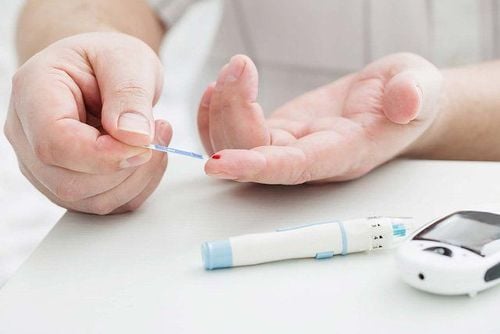
Tiểu đường loại 2 là bệnh tiến triển và khó điều trị dứt điểm
Here are some treatments for type 2 diabetes.
Insulin: Diet, exercise and oral medications will control diabetes only if you use them. Missing doses and diets can affect your blood sugar control to the point where you need insulin.
There are many types of insulin, the identification of which is based on when it starts to work and how long it takes to lower a person's blood sugar.
The main classes of insulin include:
Immediate-acting insulin: this goes into your body within 30 minutes and works best for blood sugar control during main meals and snacks. There is also rapid-acting insulin that starts working in about half the time, but doesn't last as long.
Short-acting insulin: It takes longer for your body to absorb than the immediate-acting type, but it lasts longer. This one works great for controlling blood sugar overnight and between meals.
Long-acting insulin: This can keep blood sugar levels stable for most of the day. The drug works overnight, between meals, and when you are fasting. In some cases, it may work longer than 24 hours.
There are also insulin blends that combine long-acting and immediate-acting. These are called combination insulins.
Consult with your doctor to find out which is best for you.
You and your doctor also need to choose how to inject insulin for the best effect. Here are some options:
Syringe: You will use this to inject yourself with insulin. You can put them in: abdomen, thighs, buttocks, upper arms. Injection pens: These have a needle at the tip, similar to a syringe, but easier to use. Syringe: This is a machine that you carry in a small pocket or belt bag. It is connected by a thin tube with a needle that is injected into the skin. With this option you will receive a steady stream of insulin.
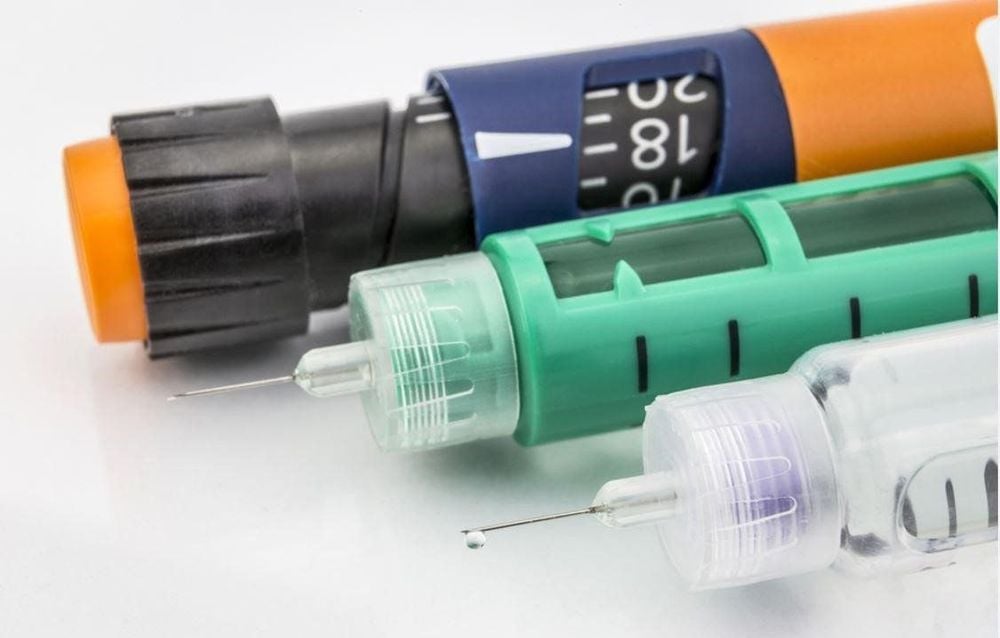
Một số dạng bút tiêm insulin thường được sử dụng trong điều trị tiểu đường loại 2
Surgery
Gastric bypass surgery, also known as gastrectomy, is not a specific treatment for type 2 diabetes. However, [if your doctor says body mass index (BMI)] ) is higher than 35, you may consider opting for weight loss surgery. It is important to note that its long-term effects on type 2 diabetes are unknown. Consult your doctor if you are in doubt about this method.
Experts are still studying the possible effects, but most people who have surgery lose a significant amount of weight and see their blood sugar return to normal or near-normal.
Artificial pancreas
The goal of this approach is to develop a unique system that will monitor your blood glucose level 24/7 and automatically give you insulin or other medications when you need it.
A so-called hybrid closed-loop system was approved by the FDA in 2016. It checks your sugar level every 5 minutes and delivers insulin when you need it.
Research on artificial pancreas has mainly focused on people with type 1 diabetes. However, it can also help people with type 2 diabetes.
If there is a need for counseling and To visit Vinmec Hospitals under the nationwide health system, please book an appointment on the website to be served.
Please dial HOTLINE for more information or register for an appointment HERE. Download MyVinmec app to make appointments faster and to manage your bookings easily.
Reference source: webmd.com



